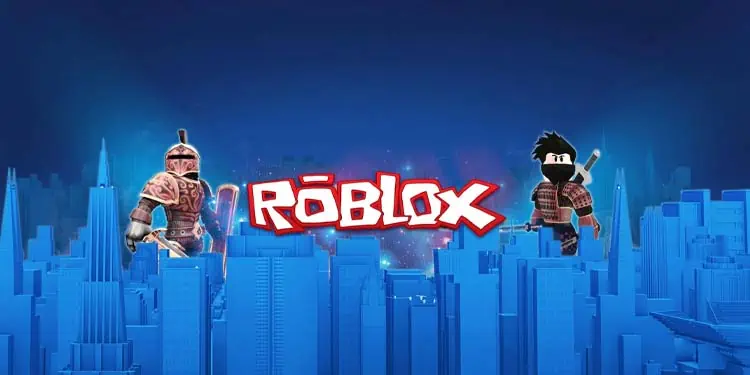Open-ended goals, grounded mechanics, and work/pleasure activities are essential. It’s perhaps what you’re looking for in the best games like Second Life.
There was already an online “metaverse” years before Facebook changed its name. In other words, an online platform, a virtual world for virtual life.
Are you eager to escape to virtual life and do things differently than your physical self? Then we’re counting the best games like Second Life, some VR games, while others are not.
Selecting Games Like Second Life

Linden Lab, the developers, have said Second Life is not a “game.” That’s because it has no conflict and no objective. Instead, they describe it as an “open-ended experience” and a multi-user virtual platform.
But because you can interact with the content through a VR headset and controllers, we believe we can compare it to other games. Also, “open-ended” experience is a gaming genre – we know it as “sandbox.”
And we need bases to compare it. To find other games like Second Life, we’re listing its core characteristics:
- MMO: You create an avatar and have a virtual life in a shared and persistent online virtual world with thousands of people.
- Price: The game is free, and you can access it via the Linden Lab’s client.
- Content: The entire content within the game is 3D and user-generated. It means other users manage all of its activities.
- Socialization: You can socialize with others via VR chat within the game. It allows you to have friendships, romances, or participate in group activities.
- Relationships: Romantic relationships is perhaps the most popular part of Second Life. You can even marry in-game and access adult content.
- Trading: You can trade virtual properties and services for currency. You can also work in your shop or another’s shop.
- Monetization: You can create items like home decor and virtual fashion to monetize and customize your avatar.
- Economy: There’s an in-game currency that you earn as you work and trade. Then you spend the currency for properties and services.
- Leisure Activities: You can also go to places like bars, carnivals, discos, pools, beaches, and anything you can imagine.
- Building: Via the building mode, you can build a house, a shop, museums, islands, towers, and anything you can imagine.
- Events: The users can organize events like theater, concerts, music streams, art exhibits, or sports.
- Real-life Institutions: Organizations like schools, colleges, embassies, offices, religious groups, and conventions have a virtual space within Second Life.
- Education Value: In that regard, some educational institutions have created virtual models of historical buildings to teach.
- Scientific Research: Various scientific organizations also use it to conduct their research safely.
Overall, we’re looking for VR or non-VR games where you can have open-ended experiences in a virtual world.
Games Like Second Life
Sansar

- Developer: Wookey Project
- Publisher: Linden Lab
- Release Date: July 2017
- Platform: Windows (VR via Oculus Rift or HTC Vive)
Sansar is one of the largest virtual worlds available, and it’s also in VR. Because it debuted as a non-VR title, players can still access it regularly through the Windows Sansar client. The style focuses heavily on fantasy and sci-fi rather than real-world locations and mechanics.
The game’s premise is similar to Second Life’s offering. It’s an expansive reality with modernized mechanics and visuals compared to its brother title. It includes a virtual economy, the “Sansar dollar” currency, and ways to monetize your creations.
For instance, avatars have a graphical representation of the user’s speech. That means facial animations, hand gestures, and realistic body animations. Similarly, the character creation screen is comprehensive.
In particular, it helps you connect with people based on shared interests. Then, you can form communities to create, share, and participate in events, worlds, and activities. These may be sports, games, concerts, watch parties, conversations, conventions, lectures, talks, and more.
So, in a sense, it’s almost the same game as Second Life, only newer. Essentially, it grants tools for user-created 3D spaces and interactive social experiences. Also, it’s free, but it offers advanced features to subscribers.
Entropia Universe

- Developer: MindArk
- Publisher: MindArk
- Release Date: January 2003
- Platform: Windows
Entropia Universe is a sci-fi MMO virtual universe. Its focus is on earning currency you can trade in real-life. Therefore, the economy is complex and fleshed out. As a result, it features a comprehensive marketplace with hunting, crafting, mining, and processed items.
Entropia uses a micropayment model. It means players buy in-game currency (PED or “Project Entropia Dollars). Everything you use costs PED: fuel, ammo, repairs, tools for mining, tools for crafting, and such. There’s no such thing as “winning” the game, so you may get lost in the addictive nature of loot boxes.
Its primary and largest planet, Planet Calypso, Entropia Universe, is a full-on third-person sci-fi RPG open-world game. You explore planets on foot or on your ships and gather resources as you explore and combat. Combat rewards get loot from monsters you can then trade for currency. Moreover, your actions raise different skills.
So, the game encourages you to play to make a profit. And as you do it, the exploration and discovery are thrilling. The landscapes, sci-fi music, and spaceships feel unique. Moreover, it’s free-to-play and a special monetization item for free players.
Lastly, Entropia Universe features a healthy community. There’s even a monetized “mentor” system to guide new players. For instance, others can help you understand how each of the six planets works. For example, Arkadia is a treasure-hunting map, and Rocktropia is a world that revolves around music events.
Twinity

- Developer: ExitReality
- Publisher: ExitReality
- Release Date: September 2008
- Platform: Window
Twinity is a 3D online and multi-user virtual world. It includes fantasy, real-life places, realistic mechanics, and user-created content. Moreover, it focuses greatly on the ability to have a relationship in-game and access adult content.
Its residents, the Twinizens, can navigate around historical versions of real-life cities. Developers call it “mirror world” and “Metaverse.” It’s the first 3D world to deliver replicas of places and structures worldwide.
You enter the world as a customizable avatar. The “Photofit” technology allows you to upload your photo, so the game’s system can adapt it and deliver a similar picture. You can also create a custom look, though, as role-playing is common among the players.
Inside the world, you’ll find a mix of professional and user-generated content. Users can create and sell their own content, such as items, experiences, events, lounges, hotels, apartments, and more. There’s even a real-state agency in-game.
Lastly, the virtual currency, “Globals” allows you to buy furniture, animations, clothes, and apartments. You can buy Globals with your real cash or perform certain activities. For example, you can gain Globals by going to virtual events and contests.
IMVU (Instant Messaging Virtual Universe)

- Developer: Daren Tsui (CEO)
- Publisher: Daren Tsui (CEO)
- Release Date: April 2004
- Platform: Windows, Android, iOS, macOS
IMVU is an online social networking site and a virtual world. It’s not a game, and the developers don’t sell it as a game. It’s instead a virtual social experience that happens through an avatar.
You can join for free with your Facebook or Apple account. Moreover, it’s available for smartphone and tablet devices, unlike most experiences of its kind. The graphical style allows it to run on almost any platform.
You join in as a 3D customizable avatar. Within the world, you meet, hang out, and chat with people. Alternatively, you can create, share, and play games. Similarly, you can create and trade goods, and IMVU has one of the biggest virtual goods catalogs available in the industry.
The world offers large maps to explore, plus an active community with millions of players. In that regard, you can customize your avatar for free with many options. Moreover, you can customize your emojis and other messaging options.
Lastly, many users join IMVU to enjoy it as a social and dating app. It lets you connect with nearby players, according to the location you choose, to meet potential partners and friends.
Avakin Life – 3D Virtual World

- Developer: Lockwood Publishing
- Publisher: Lockwood Publishing
- Release Date: December 2013
- Platform: Android, iOS, Chorme OS
Avakin Life is very similar to Second Life as well. Yet, it’s available on iOS, Android, and Chrome OS, so it works as a “lite” and mobile version of your favorite virtual world.
As usual, you join as a customizable avatar and explore virtual worlds. The experience is about dressing up, decorating and designing your home, and visiting other people’s places.
There’re plenty of options and items to build and design your home. In particular, the game focuses on modern, classic, and Hollywood styles. It also includes the latest fashion trends in clothes and home decor.
You can chat, hang out, and have romantic relationships as you visit and receive visits. It’s a role-playing simulation experience with thousands of people in the community.
As a simulation game, it has no main objective. You can use it to interact with its many components and other people. However, core features include social spots, the in-game currency you earn by completing jobs and achievements, and virtual pets.
Garry’s Mod

- Developer: Facepunch Studios
- Publisher: Valve
- Release Date: November 2006
- Platform: Windows, macOS, Linux
Garry’s Mod is hard to explain, as it’s not exactly a game. A better term would be a “virtual platform” or a “virtual tool” to create your own sandbox games and experiences. And it work’s through Valve’s Source engine, the one present in the Half-Life series.
So, you join the platform and either play other people’s games or create your own worlds and experiences. The main experience is a world where you can manipulate objects, build, create laws, and customize events.
The core element is its physics engine. You enter a world, and you can spawn NPCs, props, ragdolls, and more. You can also spawn characters, weapons, armors, and structures from different Valve games. Then, you can interact through various means to create your content.
There’re also notable game modes as both developers and modders create them. You’d need to install these additional modes separately via the Steam Workshop. This is a Valve-exclusive, so it’s only available on Steam.
Don’t worry, though. Garry’s Mod is incredibly popular, with an average of over 20K concurrent players monthly. It means you can easily find others and become part of a virtual community.
Roblox

- Developer: Roblox Corporation
- Publisher: Roblox Corporation
- Release Date: September 2006
- Platform: Windows, iOS, Android, Xbox One
Roblox is an online game creation system. It’s also a place to create, share, and play user-created games. You can find all of this on the Roblox web page for free – user-created games on one side and the tool on another.
So, like Second Life, Roblox is a virtual environment where you can invite others to play with your creations. It’s not an MMO, as each game features fewer people. However, the grand total of Roblox players is way beyond Second Life’s numbers, as it’s about 5 million against 90K players.
It’s also free to play, but there’re in-game purchases. That said, the amount of content is staggering. You can find medieval games, RPGs, horror sims, open-world sandbox experiences, social hubs, and more. There’re also virtual events like conventions, awards, sports, competitions, concerts, and film promotions.
Otherwise, you may use the Roblox Studio to create your own areas and maps. You can monetize your content in various ways, and Roblox may also support your creations if they are worthy.
Lastly, Roblox allows you to create, buy and sell virtual items. These are home decor and fashion items to customize your avatars. You’d need a Roblox subscription to sell items, though.
The Sims 4

- Developer: Maxis
- Publisher: Electronic Arts
- Release Date: September 2014
- Platform: Windows, macOS, PS4, Xbox One
The Sims 4 is the latest entry in the most popular social simulation game. The gameplay is about “humanizing” a “Sim,” and the game’s title is short for “simulation.” It’s pretty straightforward. Yet, sadly, the game’s system goes in-deep, as well as the DLCs and post-launch pretty content.
First, you create a “Sim” through a comprehensive character creation menu. You customize gender, appearance, personality, and skills. Then, you build or buy a house in the neighborhood with limited resources and manage his life.
You can start at any of the available stages. There’re seven stages (baby, toddler, child, teenager, young adult, adult, and elder). Moreover, you can make friends, get a partner as an adult, and have your own family.
The gameplay is strategic and revolves around managing your Sim’s necessities and desires. That means getting a job, earning money, spending money, eating, showering, buying groceries, sleeping, interacting with others, going to the bathroom, attending parties, getting promotions, and more.
Lastly, you interact with other Sims in the neighborhood. Some are NPCs, while others can be your creations, living their lives in parallel through the game’s AI. Alternatively, you can swap in-between characters at any time or start over as many times as you need – managing your “Simoleons” is not easy.

